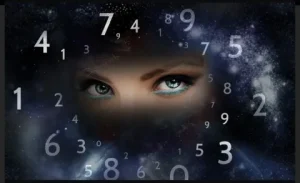Horoscopes have fascinated people for centuries, offering insights into personality traits, life predictions, and cosmic influences. As a tool for self-reflection and guidance, horoscopes remain a popular way for people to connect with their star signs and explore the potential influence of the stars on daily life. This article delves into the world of horoscopes, examining what they are, how they’re interpreted, their cultural significance, and the common misconceptions around them.
What Are Horoscopes?
Horoscopes are interpretations of the astrological positions of celestial bodies, specifically planets, at a given time, usually based on one’s birth date. These interpretations assign each person a zodiac sign according to the sun’s position when they were born. The twelve zodiac signs—Aries, Taurus, Gemini, Cancer, Leo, Virgo, Libra, Scorpio, Sagittarius, Capricorn, Aquarius, and Pisces—each come with associated characteristics and potential life paths. Astrologers craft these horoscopes, using charts and planetary alignments to outline specific traits, compatibilities, and even career tendencies.
Each zodiac sign has its unique personality traits, strengths, and challenges. For instance, Aries, the first sign, is often seen as ambitious, energetic, and confident. Conversely, Virgo, an earth sign, is regarded as practical, detail-oriented, and analytical. By examining the alignment of the planets, astrologers can give general advice or predictions on aspects like love, work, or personal growth, providing individuals with insights or, at times, simple reassurances.
How Are Horoscopes Interpreted?
Horoscope interpretations rely on an intricate system known as a birth chart or natal chart. A birth chart maps out the positioning of the planets, sun, and moon at the exact time and location of someone’s birth. This chart is divided into twelve “houses,” each representing different life aspects, like family, career, relationships, and health. By examining which planets occupy each house and sign, astrologers interpret the influence these celestial bodies may have on an individual’s life.
In addition to the sun sign (the main zodiac sign), other planetary positions, like the moon sign and rising (or ascendant) sign, play a significant role in one’s astrological profile. The sun sign represents core identity, the moon sign indicates emotional nature, and the rising sign reflects outward behavior and first impressions. Astrologers believe these elements combined create a complex picture that goes beyond a one-size-fits-all horoscope, allowing for a deeper understanding of personal strengths and potential challenges.
The Cultural Significance of Horoscopes
Horoscopes have influenced cultures worldwide, with their roots tracing back to ancient civilizations. The Babylonians were among the first to formalize astrology, while Greek, Chinese, and Hindu societies developed their own interpretations and methodologies. These early societies used horoscopes as a means of divining guidance from the heavens, believing that cosmic forces influenced both personal lives and societal events.
In modern times, horoscopes remain widely popular, especially through online platforms, newspapers, and magazines. They serve as a form of entertainment and self-reflection, providing individuals a way to connect with the cosmos and, potentially, themselves. For many, horoscopes offer reassurance or guidance during uncertain times, providing a sense of control or hope by attributing life’s challenges to larger cosmic patterns. Even as scientific skepticism toward astrology persists, horoscopes continue to hold cultural importance, especially in discussions around personality, relationships, and life goals.
Misconceptions and Criticisms of Horoscopes
Horoscopes often face criticism, primarily from the scientific community, which views astrology as a pseudoscience. Many scientists argue that the positions of celestial bodies have no proven impact on personality or life events, dismissing horoscopes as mere superstition. Critics claim that horoscopes are often written in a generalized way, allowing individuals to interpret them in personally meaningful ways, a psychological phenomenon known as the “Barnum effect.”
However, proponents of astrology argue that horoscopes are not meant to predict specific events but rather to encourage self-reflection and awareness of potential challenges or opportunities. They see astrology as a tool for exploring different aspects of personality and providing a framework for understanding emotions, relationships, and ambitions. While the scientific community may remain skeptical, horoscopes continue to resonate with millions worldwide, often as a form of personal guidance rather than absolute truth.
In conclusion, horoscopes remain a fascinating blend of cultural tradition, personal insight, and cosmic curiosity. Whether taken seriously or seen as a lighthearted ritual, they offer a way for people to explore their personalities, reflect on life’s complexities, and feel connected to something larger than themselves. While scientific validation may be lacking, the enduring appeal of horoscopes lies in their ability to provide comfort, direction, and a touch of cosmic mystery.